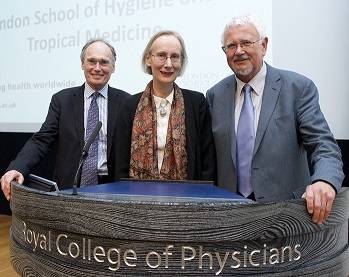Sign up to our newsletter Subscribe
Analysing Global Immunisation Expenditure

Sign up to our newsletter Subscribe


Health services available to the entire population free of charge, and providing the best health advice and treatment, was the foundation stone for the creation of the National Health Service. The health systems of most other high income countries similarly…
Health services available to the entire population free of charge, and providing the best health advice and treatment, was the foundation stone for the creation of the National Health Service. The health systems of most other high income countries similarly embody the ideal of universal health coverage. Yet low- and lower-middle-income countries have recently been on the receiving end of global policies that have emphasised highly selective goals, in contrast to the initial broad themes of the Primary Health Care movement founded in Alma Ata in 1975 and pursued through WHO’s slogan Health for All.
Universal Health Coverage: the Holy Grail?
Professor Anne Mills, London School of Hygiene and Tropical Medicine
For audio recording of the entire lecture, click here

Health services available to the entire population free of charge, and providing the best health advice and treatment, was the foundation stone for the creation of the National Health Service. The health systems of most other high income countries similarly embody the ideal of universal health coverage. Yet low- and lower-middle-income countries have recently been on the receiving end of global policies that have emphasised highly selective goals, in contrast to the initial broad themes of the Primary Health Care movement founded in Alma Ata in 1975 and pursued through WHO’s slogan Health for All. Recent policies have focussed on controlling specific diseases such as HIV and malaria and delivering specific interventions such as immunisation. In the last few years, universal health coverage has attracted greater attention. It has been the subject of World Health Assembly and UN General Assembly resolutions, and is being strongly advocated for inclusion in the post-2015 Millennium Development Goals.
Professor Anne Mills CBE MA DHSA PhD FMedSci FRS is a world renowned expert in health economics, health care financing and policy in low and middle income countries.
She has a distinguished academic career at the London School of Hygiene and Tropical Medicine, where she is Vice Director of the School and Professor of Health Economics and Policy in the Department of Global Health and Development. She previously served as Director of the Health Economics and Financing Programme, which was supported by a variety of research grants from funders such as DFID, the Wellcome Trust, EU and WHO, and as the Head of the Faculty of Public Health and Policy. She has advised many multilateral, bilateral and government agencies; served on the WHO's 2001 Commission on Macroeconomics and Health chaird by Jeffrey Sachs; and co-chaired one of the two Working Groups for the 2009 High Level Taskforce on Innovative International Finance for Health Systems, co-chaired by Prime Minister Gordon Brown.
In 2006 she was awarded a CBE for services to medicine and elected a Foreign Associate of the US Institute of Medicine. In 2009 she was elected Fellow of the UK Academy of Medical Sciences and received the Prince Mahidol Award in the field of medicine. She was President of the International Health Economics Association (iHEA) for 2012/13. She was elected a Fellow of the Royal Society in 2013.
The Twitter hashtag for this event was #OHEMills.
An error has occurred, please try again later.
This website uses cookies so that we can provide you with the best user experience possible. Cookie information is stored in your browser and performs functions such as recognising you when you return to our website and helping our team to understand which sections of the website you find most interesting and useful.
Strictly Necessary Cookie should be enabled at all times so that we can save your preferences for cookie settings.
If you disable this cookie, we will not be able to save your preferences. This means that every time you visit this website you will need to enable or disable cookies again.
This website uses Google Analytics to collect anonymous information such as the number of visitors to the site, and the most popular pages.
Keeping this cookie enabled helps us to improve our website.
Please enable Strictly Necessary Cookies first so that we can save your preferences!



